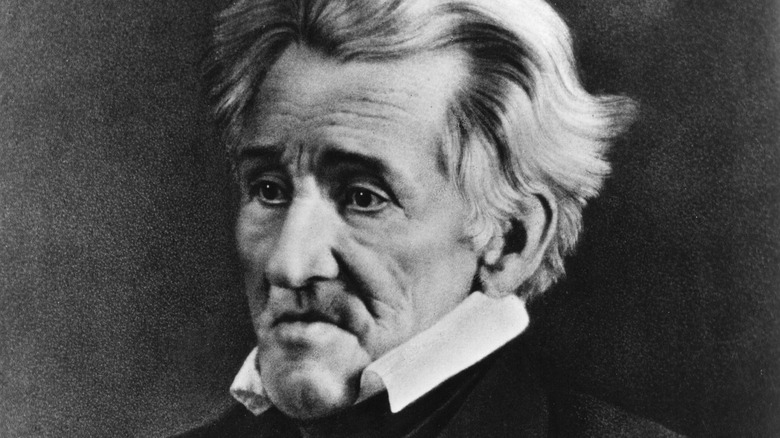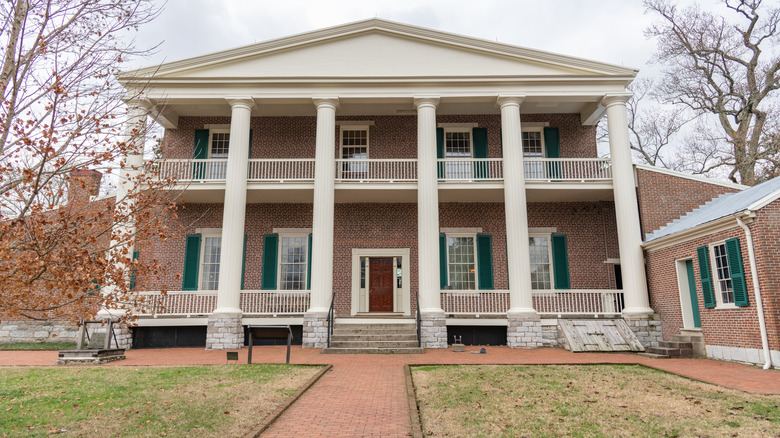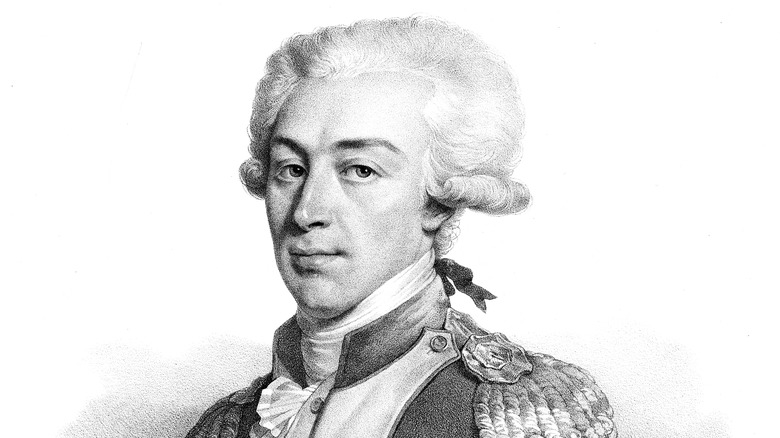Here's Who Inherited Andrew Jackson's Estate After He Died
President Andrew Jackson was slowly dying. In his final weeks in the late spring of 1845, he was "swollen all over," his "face is out of all shape," and "his sufferings ... very great," his daughter-in-law Sarah Jackson recalled in a letter (via "American Lion: Andrew Jackson in the White House"). Finally, on June 8, 1845, the seventh U.S. president died at his home called the Hermitage near Nashville, Tennessee, from congestive heart failure. He was 78.
In Jackson's will written two years before his death, he left most of his estate — including the Hermitage and its surrounding land, furnishings, and the plantation's enslaved workers — to his adopted son Andrew Jackson Jr., according to the Tennessee Virtual Archive. The will gifted other enslaved people to Jackson's relatives along with several ceremonial swords, pistols, and other weapons the general used over his career as a soldier. The Hermitage was a cotton and tobacco plantation that used enslaved people to run, per the National Endowment for the Humanities.
An adopted son
Andrew Jackson and his wife Rachel adopted a nephew — one of her brother's twin boys — around 1809, naming him Andrew Jackson Jr. It's unclear why the boy's birth parents, Severn Donelson and his wife Elizabeth, allowed for this arrangement, according to The Hermitage site. Andrew Jackson Jr. was well educated and by the age of 20 was in charge of running the Hermitage while his adopted father was in the White House. But Junior was impecunious and required a lot of oversight by Jackson in his business dealings.
It wasn't long after the president's death that the younger Jackson began selling off pieces of the property to pay his mounting debts. In 1856, his bad investments led him to sell the Hermitage to the state of Tennessee. He died in 1865 from tetanus after accidentally shooting himself in the hand while hunting. President Jackson also bequeathed gifts of enslaved people to Junior's wife and children, per the Tennessee Virtual Archive.
Enslaved people and ceremonial swords
Andrew Jackson was an enslaver who by the time of his death owned 161 enslaved people, per the National Endowment for the Humanities. At his death — besides giving his adopted son most of the enslaved people who did all the work at the Hermitage — he bequeathed his "house servant" and her two daughters to his daughter-in-law Sarah. He gave his grandson Andrew Jackson III an enslaved person "named Ned, son of blacksmith Aaron and Hannah his wife," left "several" enslaved people to his granddaughter Rachel, and a young man "named Davy or George, son of Squire and his wife Geney" to his grandson Samuel (via The Tennessee Virtual Archive).
Among the various weapons Jackson had collected over the years, he gave Andrew Jackson III a ceremonial sword the citizens of Philadelphia had presented to him while he was president. His two nephews, Andrew Jackson Donelson and Andrew Jackson Coffee, also received ceremonial swords. Jackson owned a pair of pistols the French hero of the American Revolution, the Marquis de Lafayette, had given George Washington in 1778, per The Hermitage site. In Jackson's will, he left the prized guns to the Marquis' son, George Washington Lafayette.


